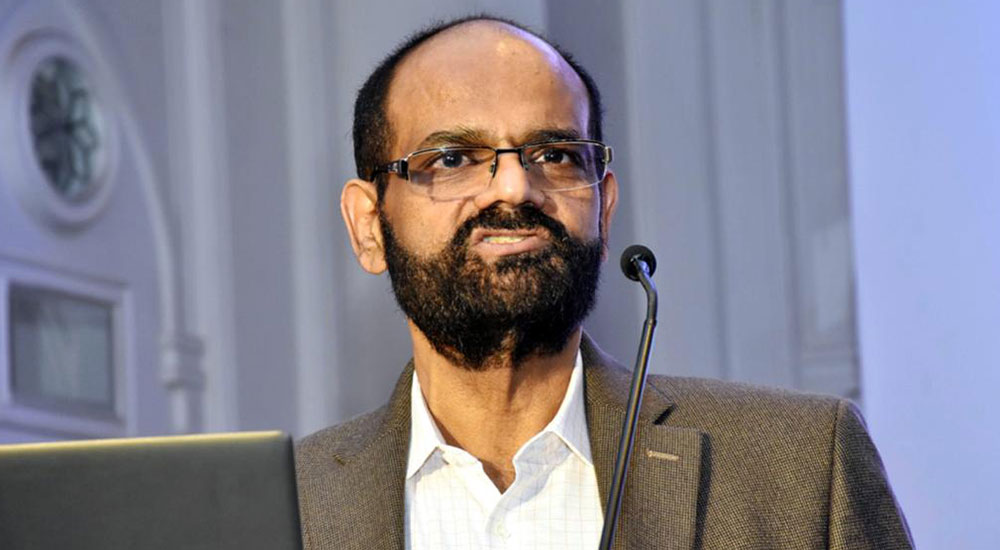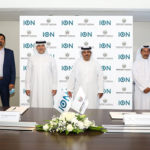How the pandemic is disrupting healthcare practices for the better

Apollo Hospitals was established in 1983, a milestone for modern healthcare in India. As the nation’s first corporate hospital, Apollo Hospitals has pioneered private healthcare in the country. Apollo Hospitals now provides integrated healthcare services and has a presence through hospitals, pharmacies, primary care, diagnostic clinics and telemedicine units. One of Apollo’s significant contributions has been the adoption of clinical excellence as an industry standard.
Apollo Hospitals also provides 24×7 services that includes consultation with 15 minutes; online booking for medical tests; online consultation follow-up through audio, video, chat; online purchase of medicines and delivery within 3 hours through the network of Apollo pharmacies; digital storage of medical records; amongst others.
Apollo Hospitals was among the first hospitals in the world to leverage technology to facilitate seamless healthcare delivery. The organisation introduced Proton Beam Therapy Center that is expected to serve over 3 billion people. Since inception, Apollo Hospitals has been trusted by 65+ million patients from 141 countries.
Gains and pains
Due to the pandemic, the regular workflow at the hospitals of the Apollo Group was affected. The number of elective patients fell sharply. As the patients do come in for elective consultation, it is necessary to identify any suspect Covid-19 cases amongst them, and administer suitable healthcare, through triaging.
All these challenges are rather new for the healthcare industry and Apollo Group. “We are juggling between them and trying to do our best under current circumstances obviously. We are creating a safe environment for our doctors and staff and for people who visit our hospitals,” remarks Dr K Hari Prasad, President of Apollo Group Hospitals.
On the positive side, the pandemic is driving major transformational changes across the healthcare industry.
Before the pandemic, healthcare infections were a big cause for worry, across the world. The pandemic has drawn attention to the exposure that healthcare workers go through, and that is a positive change, according to Hari Prasad. “I think the world has changed for good and similarly healthcare has also changed for good. Healthcare providers will be more careful in protecting themselves and making sure that they do not contract anything from their patients,” he adds.
Moreover, these changes are not one off and will remain in place, since the presence and impact of Covid-19 is not short term. This is having a positive impact on the longer-term management of hospital acquired infections and health care infections. “These precautions will have positive impact,” says Hari Prasad.
Apollo Group has adopted telemedicine for some time now and it is part of its 24×7 services. This service is administered through 4,000 pharmacies and 450 diagnostic collection centers, and the integrated approach to outpatient care already exists. However, the pandemic has accelerated the demand for telemedicine amongst the patients of the Apollo Group. This is driving a transformation in how to administer healthcare.
“We have seen a great uptake of telemedicine ever since Covid has come in because people do not want to come out of their houses and are seeking teleconsultations and telemedicine for their healthcare needs,” points out Hari Prasad.
“A newer model of care will start evolving and has already started evolving. I think technology is here to stay and will go long way,” he adds.
Another positive change that has been triggered by the arrival of Covid, is the requirement to work with a much smaller revenue base, and yet deliver quality healthcare services. “There will be a huge emphasis on the cost and healthcare industry will learn to serve people at a lower cost,” says Hari Prasad.
Usage of AI
On the technology side, Apollo Group Hospitals is partnering with a number of global technology vendors to develop its capability to apply artificial intelligence techniques. These are being applied to patient data, leading to healthcare modelling and statistical probability trends.
Hari Prasad cites the example of the recently developed cardiac risk scoring model developed from data collected from the East population of the world, by Apollo Group Hospitals. Prior to this, the cardiac risk scoring model was based on data from the West, namely the Framingham heart study.
Artificial intelligence has been used to develop this model, and gives the scoring in terms of the susceptibility of the individual to get a cardiac disease. The patient is then followed up, to act aggressively and prevent any potential damage to the heart.
“We have a different view from the Western part of the world. We finally have risk scoring, which is appropriate to people living in this side of the world, in the Middle East, in Asia, particularly, and based on certain parameters,” says Hari Prasad.
Another area where Apollo Group Hospitals has applied artificial intelligence is on the probability of women developing Cervical cancer in India.
Cervical cancer is a major cause of cancer mortality in women and more than a quarter of its global burden is contributed by developing countries, including India. In India, cervical cancer contributes to approximately 6–29% of cancer in women, according to a report published in the Indian Journal of Medical and Pediatric Oncology.
A regular healthcare practice for the detection of Cervical cancer has been the Pap smear. Detecting cervical cancer early with a Pap smear gives the patient a greater chance to get cured. However, Hari Prasad points out that the large Indian population and its distribution creates challenges. Once a patient comes for a checkup and then leaves, it is difficult to track them down again for treatment, after the clinical result comes through.
To detect Cervical cancer, Apollo Group Hospitals now captures an image of the cervix and uploads it into a cloud application supported by artificial intelligence tools. The result from the scanning aided by artificial intelligence categorises the patient into high risk; low risk or no risk. “This helps us to segregate high risk patients immediately and take care of them,” adds Hari Prasad.
Beginning of end game
The topmost consideration in everyone’s mind across the global healthcare industry is how will the pandemic end and what is the end point of the pandemic. Hari Prasad indicates that there are three essential dynamics that need to come together to accelerate the end of the pandemic and the end point. “There are three things, which we need to happen to end this pandemic.”
The first is the successful development of a vaccine. The second is the development of antiviral drug treatment specific to Covid-19. And the third is the development of herd immunity, as a consequence of wide spread infections and clinical sub-infections.
“These three things need to happen for the pandemic to slow down. All the data that is coming out right now is being used for creating a vaccine and to test various drugs, and to create the most appropriate drug in the current environment,” says Hari Prasad.
“The first thing that is on everybody’s mind is how to end this pandemic. The data is being used towards that end point. That is why you see different types of drugs coming up in different points of time.”
However, Hari Prasad points out that most of the announcements are based on epidemiological data collection and analysis, which is the branch of medicine that deals with incidence, distribution, and control of diseases. “The scientific basis of it all, will need to come from further studies and analysis,” he explains.
Has technology and innovation been sufficiently used to predict the end game? Hari Prasad believes so! Considering that Covid-19 is being seen for the first time and the short duration of six months, in which to understand it, adapt and react, a good job has been done. “I am sure going ahead we will see much more coming out of the data being collected across the work. These are the few things that are bound to happen and will happen.”

Key takeaways
- Apollo Group has adopted telemedicine for some time now and it is part of its 24×7 services.
- We have seen a great uptake of telemedicine because people do not want to come out of their houses.
- There will be a huge emphasis on the cost and healthcare industry will learn to serve people at a lower cost.
- The first thing that is on everybody’s mind is how to end this pandemic.
- Most of the announcements are based on epidemiological data collection and analysis.
- The scientific basis of it will need to come from further studies and analysis.
- There are three things which we need to happen to end this pandemic.
- All the data that is coming out right now is being used for creating a vaccine and to test various drugs.





